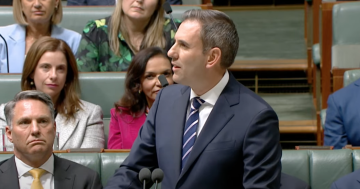
Rules around ICT contracts to federal agencies are proving problematic for some companies. Photo: AFP Media.
Federal government ICT contracting is proving to be overwhelmingly problematic for companies wanting to play by the rules but finding it difficult to understand what those rules actually are.
Frustration has reached the point for some that they are vigorously lobbying government authorities for greater transparency and a more even playing field.
The issue for many is that while there are laws governing ICT contracting, there’s not a lot of evidence of them being enforced.
“This is the way things are done around here, always has been, always will be,” is a constant retort when questions are asked.
Anyone wanting a deep understanding of employment law and statutes and how to apply them to federal government ICT contracting often gives up after encountering too many contradictory clauses and case law judgements from industrial relations, superannuation and workers compensation legislation.
Canberra based ICT recruiter Recruitment Hive is one organisation seeking clarification on a number of legal fronts so it can place high-skilled tech professionals in government roles where they are most needed.
The company is considered a serious player in the field, with around 300 contracts in more than 40 government agencies across Australia.
But it still finds the contracting procurement rules bafflingly contradictory.
Director Ben Ashman has lobbied for the issue to be on the agenda of this week’s Jobs and Skills Summit held at Parliament House, as well as the Future of Government Procurement Summit to be held in Canberra later this month.
The firm believes there is ambiguity in relevant legislation, contradictory case law decisions, lack of enforcement and corporate greed all resulting in a “wild-west of employment” in the nation’s capital.
“Over the past three years I have been on a legal learning odyssey following the very gradual realisation that ‘the way things are done around here’ in the federal government ICT contracting industry is not at all compliant with any sort of reasonable interpretation of employment law, sham arrangement legislation, tax law, superannuation legislation, or state workers compensation legislation and guidance notices,” he told Region.
“With the lack of enforcement by regulating agencies over many years, myriad labour-hire companies providing ICT contractors to the federal government in Canberra have been left to develop contracting practices that suit their needs, but quite often ignore the law and legislated requirements.
“It is very challenging to be compliant within a very large, complex and highly competitive industry in which regulators do not enforce the rules and a culture of ‘this is the way things are done around here’ has been allowed to be dominant.”
Executive chairman of PayMe Group Ian Lindgren is also chasing some answers and has even written to the ACT Government urging it to enforce established workplace laws and the new labour hire act over the whole jurisdiction, which includes federal contracts.
Companies have to be licensed in the ACT to operate in the territory, even if it is for federal contracts.
“The ACT Labour Hire Act came into force a year ago and my family businesses have lost over $10m in income as a result of my payroll companies … and my labour hire company adhering 100 per cent to the extant Acts,” he said.
“The key issues for me are protecting workers from exploitation by providers of labour hire services, and ensuring labour hire service providers meet their workplace obligations and responsibilities to the workers they supply.”
The Commonwealth Procurement Rules under section 105B(1) of the Public Governance, Performance and Accountability Act 2013 (PGPA Act) are the foundation of the Commonwealth procurement framework.
It is supported by a range of guidance material developed by the federal Finance Department to provide assurance, accountability and transparency into government procurement activities.
“Achieving value for money is the core rule of the Commonwealth Procurement Rules as it is critical in ensuring that public resources are used in the most efficient, effective, ethical and economic manner,” Finance and Public Service Minister Katy Gallagher said in endorsing the procurement rules.
“Price is not the only factor when assessing value for money, and these Rules require officials to consider a range of other relevant financial and non-financial costs and benefits.”
In the opening sessions of the Jobs and Skills Summit on Thursday 1 September, Tesla chairwoman Robyn Denholm talked up the importance of tech jobs in the employment market and said the government had to get the policies right.
“I am a tech optimist at heart. I believe that most of our problems, as a society, can be cured by technology,” she said.
“Every person on a board today has a role to play in terms of increasing the penetration of technology within your organisation …
“To me it’s tech, tech, tech.”





















